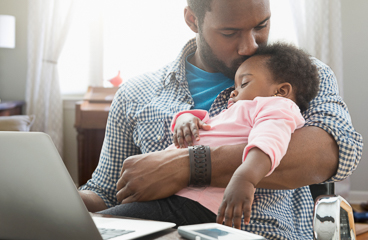
Your Care Instructions
The varicella vaccine protects you from getting infected with the varicella virus. Many people know this virus by the name chickenpox.
Chickenpox causes an itchy rash and red spots or blisters all over the body. It is most common in children. But most people will get it if they don't get the vaccine.
The vaccine is given as two separate shots. It's recommended for all children 12 months or older who have not had the virus yet. The first shot is given to children when they are 12 to 15 months old. The second one is usually given when a child is 4 to 6 years old. But some children get it sooner. Many states make you prove that your child got this shot before he or can start day care or school.
In teens and adults, a chickenpox infection can be very serious. So it's important for children, teens, and adults to get the vaccine if they haven't had chickenpox yet. People 13 or older also get two shots. The second one is given at least 4 weeks after the first one.
The shots can make the arm sore. They can also make children fussy for a short time.
You or your child may get the chickenpox vaccine as its own shot. Or you may get an MMRV vaccine. It gives the varicella, measles, mumps, and rubella vaccine together in one shot.
Follow-up care is a key part of your treatment and safety. Be sure to make and go to all appointments, and call your doctor if you are having problems. It's also a good idea to know your test results and keep a list of the medicines you take.
How can you care for yourself at home?
- Take an over-the-counter pain medicine, such as acetaminophen (Tylenol), ibuprofen (Advil, Motrin), or naproxen (Aleve), if your arm is sore. Be safe with medicines. Read and follow all instructions on the label.
- Give acetaminophen (Tylenol) or ibuprofen (Advil, Motrin) to your child for pain or fussiness. Read and follow all instructions on the label. Do not give aspirin to anyone younger than 20. It has been linked to Reye syndrome, a serious illness. Do not give naproxen (Aleve) to a child younger than 12 unless your doctor says it's okay.
- If your child is under age 2 or weighs less than 24 pounds, follow your doctor's advice about the amount of medicine to give your child.
- Put ice or a cold pack on the sore area for 10 to 20 minutes at a time. Put a thin cloth between the ice and your skin.
When should you call for help?
Call 911 anytime you think you may need emergency care. For example, call if:
- You or your child has a seizure.
- You or your child has symptoms of a severe allergic reaction. These may include:
- Sudden raised, red areas (hives) all over the body.
- Swelling of the throat, mouth, lips, or tongue.
- Trouble breathing.
- Passing out (losing consciousness). Or you or your child may feel very lightheaded or suddenly feel weak, confused, or restless.
- Severe belly pain, nausea, vomiting, or diarrhea.
Call your doctor now or seek immediate medical care if:
- You or your child has symptoms of an allergic reaction, such as:
- A rash or hives (raised, red areas on the skin).
- Itching.
- Swelling.
- Mild belly pain or nausea.
- You or your child has a high fever.
- Your child cries for 3 hours or more within 2 days after getting the shot.
Watch closely for changes in your or your child's health, and be sure to contact your doctor if you have any problems.
Where can you learn more?
Go to http://www.healthwise.net/patientEd
Enter R993 in the search box to learn more about "Varicella Vaccine: Care Instructions".
Current as of: September 10, 2024
Author: Ignite Healthwise, LLC Staff
Clinical Review Board
All Ignite Healthwise, LLC education is reviewed by a team that includes physicians, nurses, advanced practitioners, registered dieticians, and other healthcare professionals.

